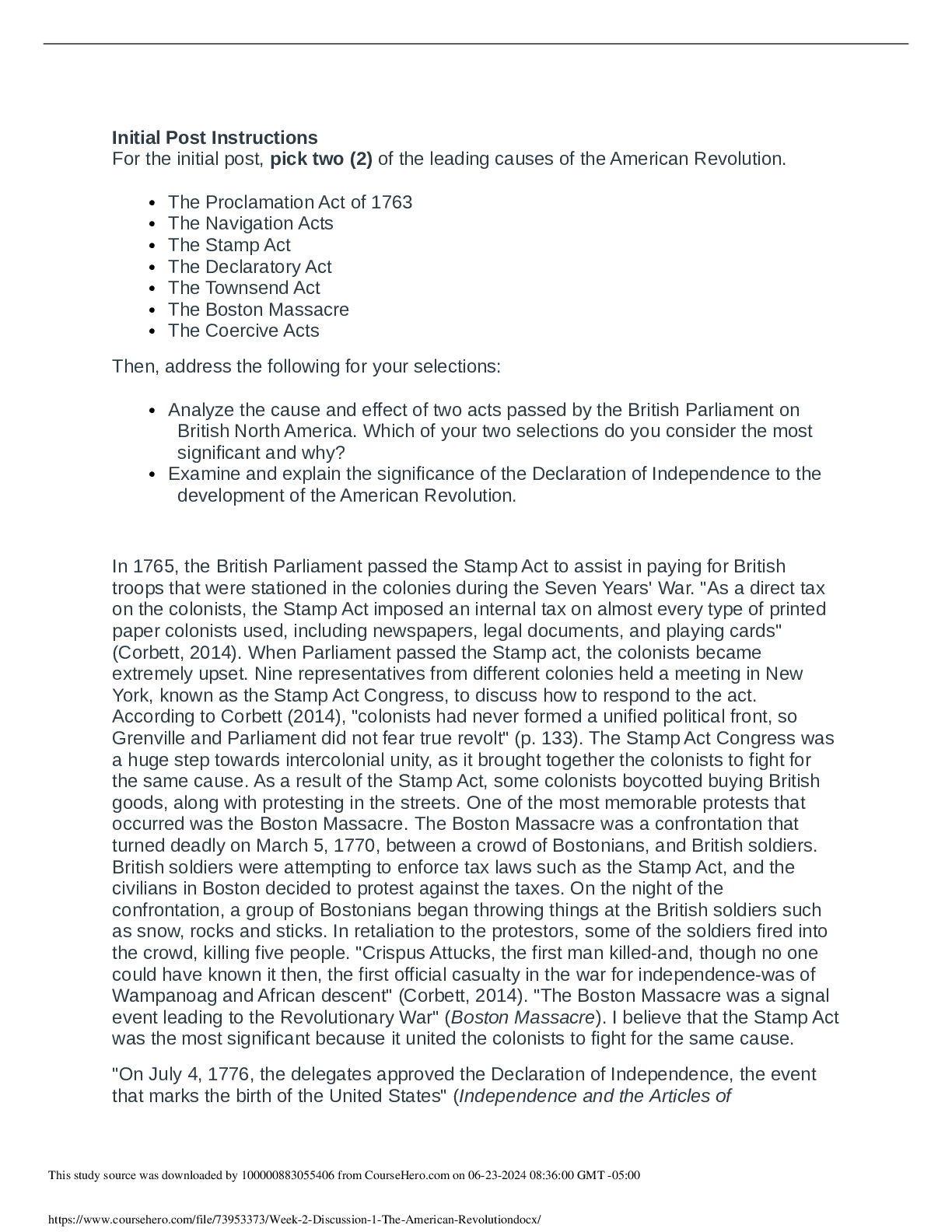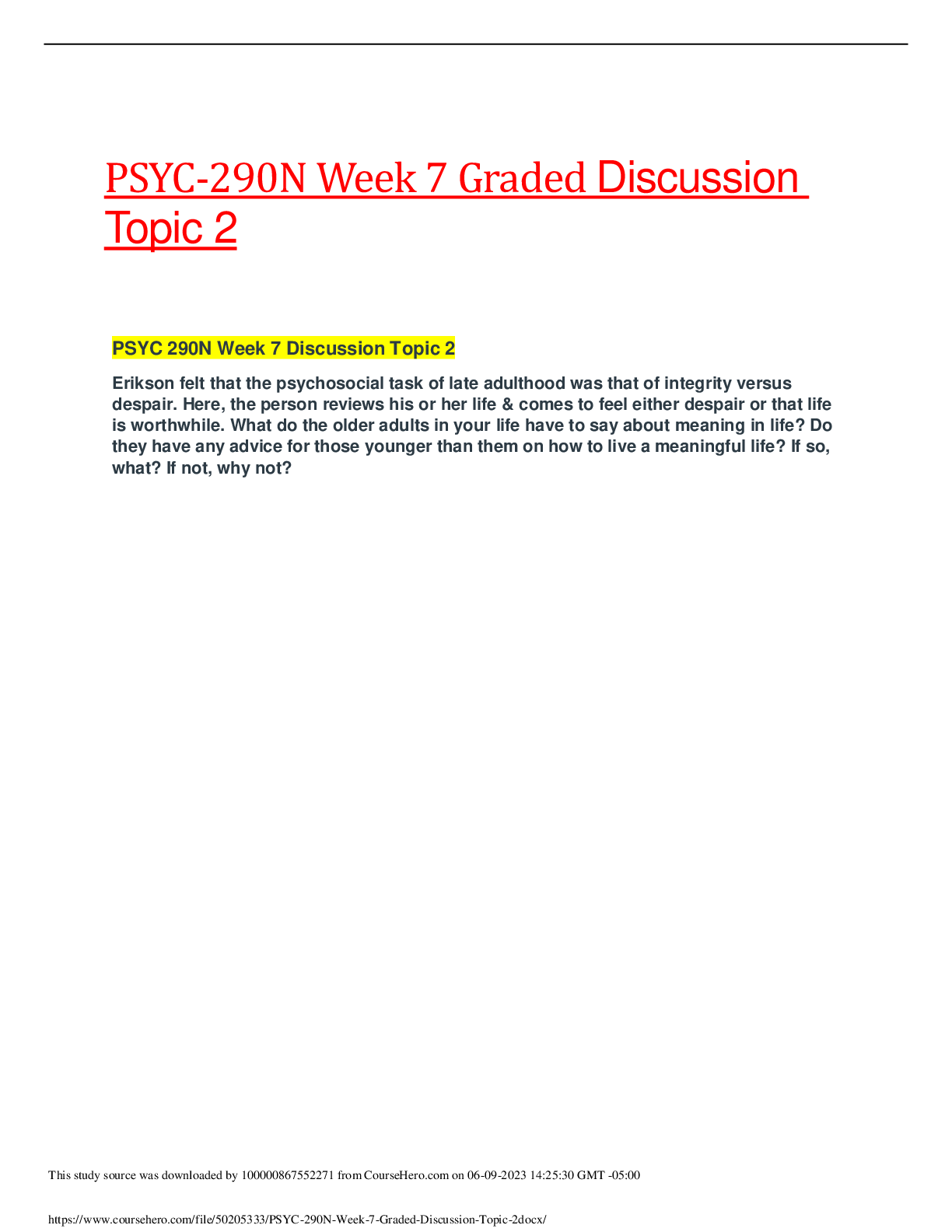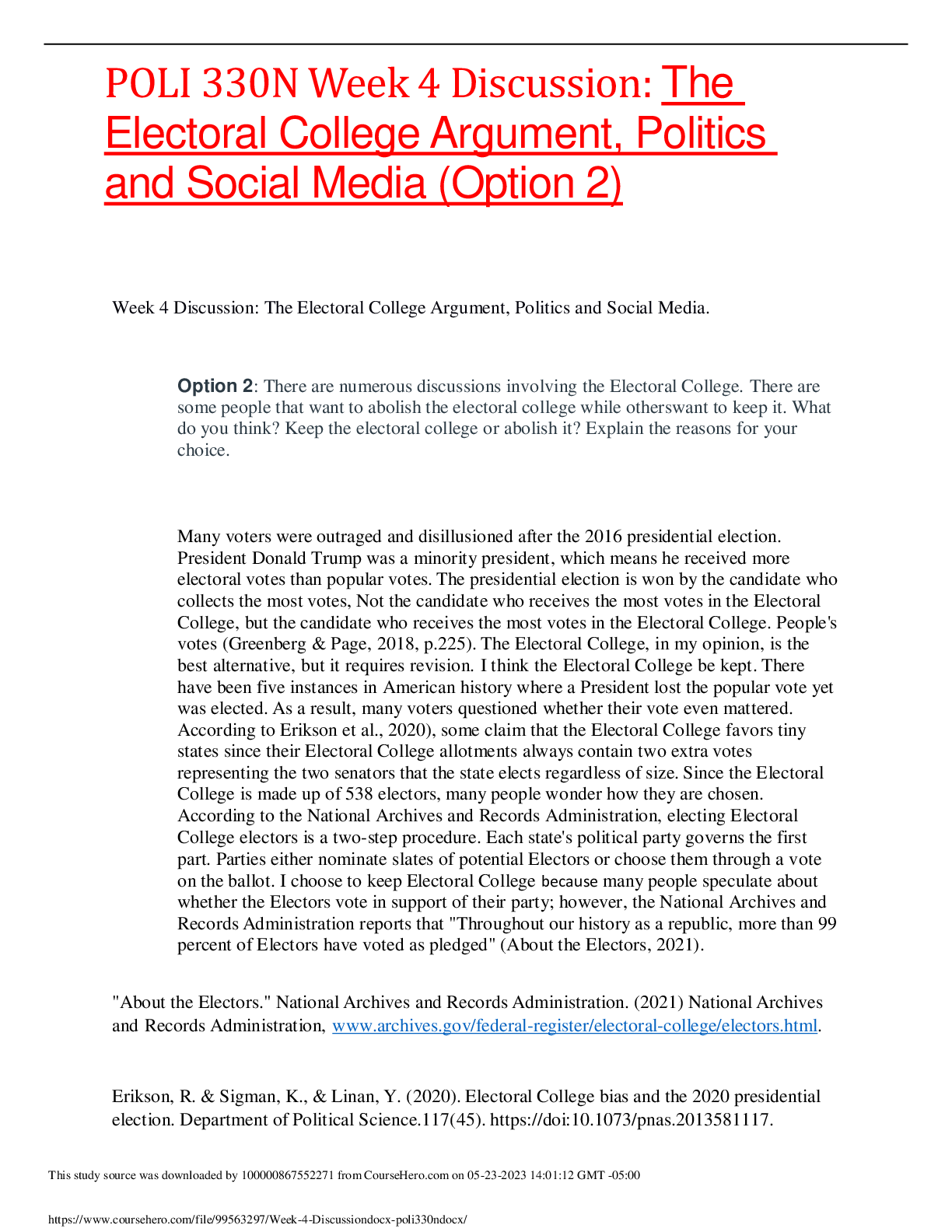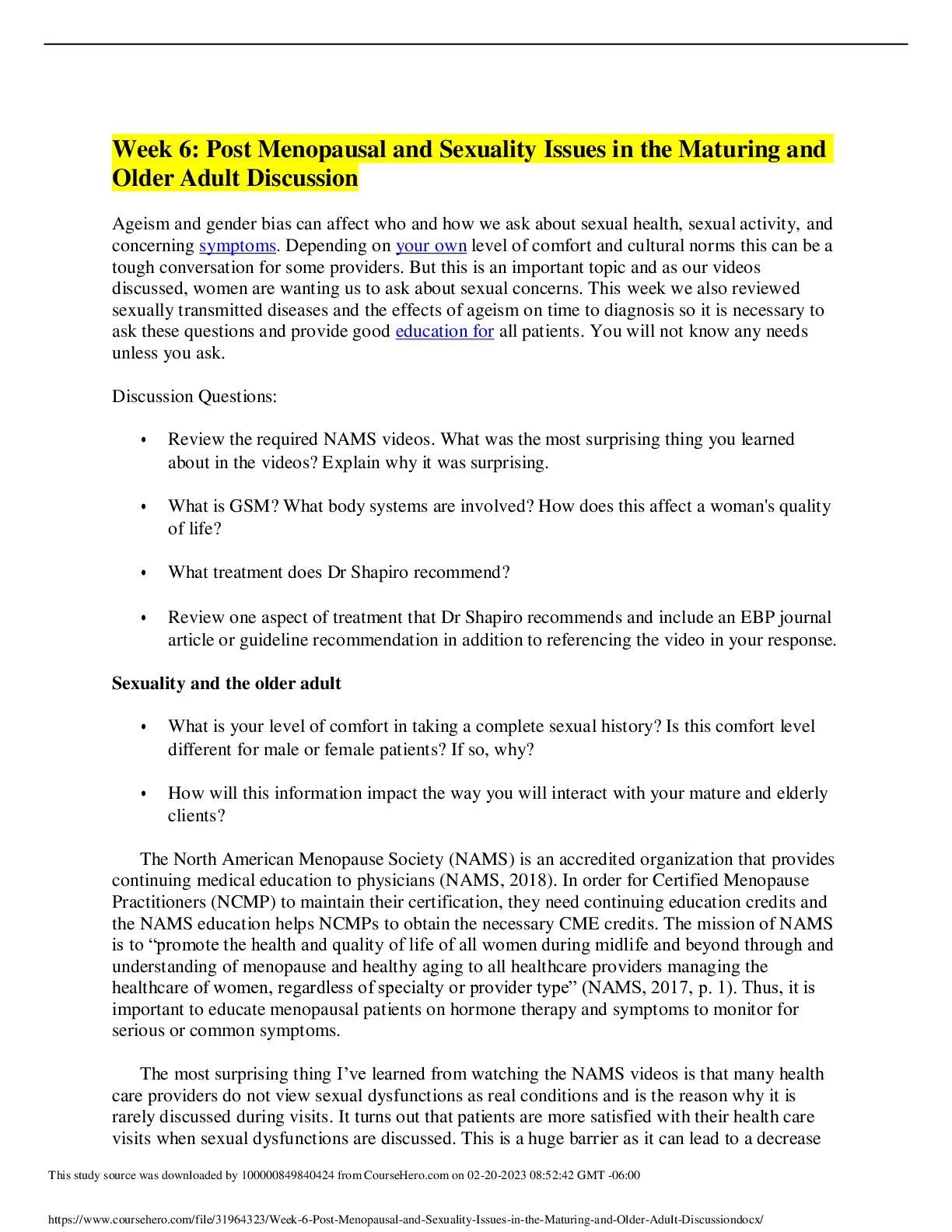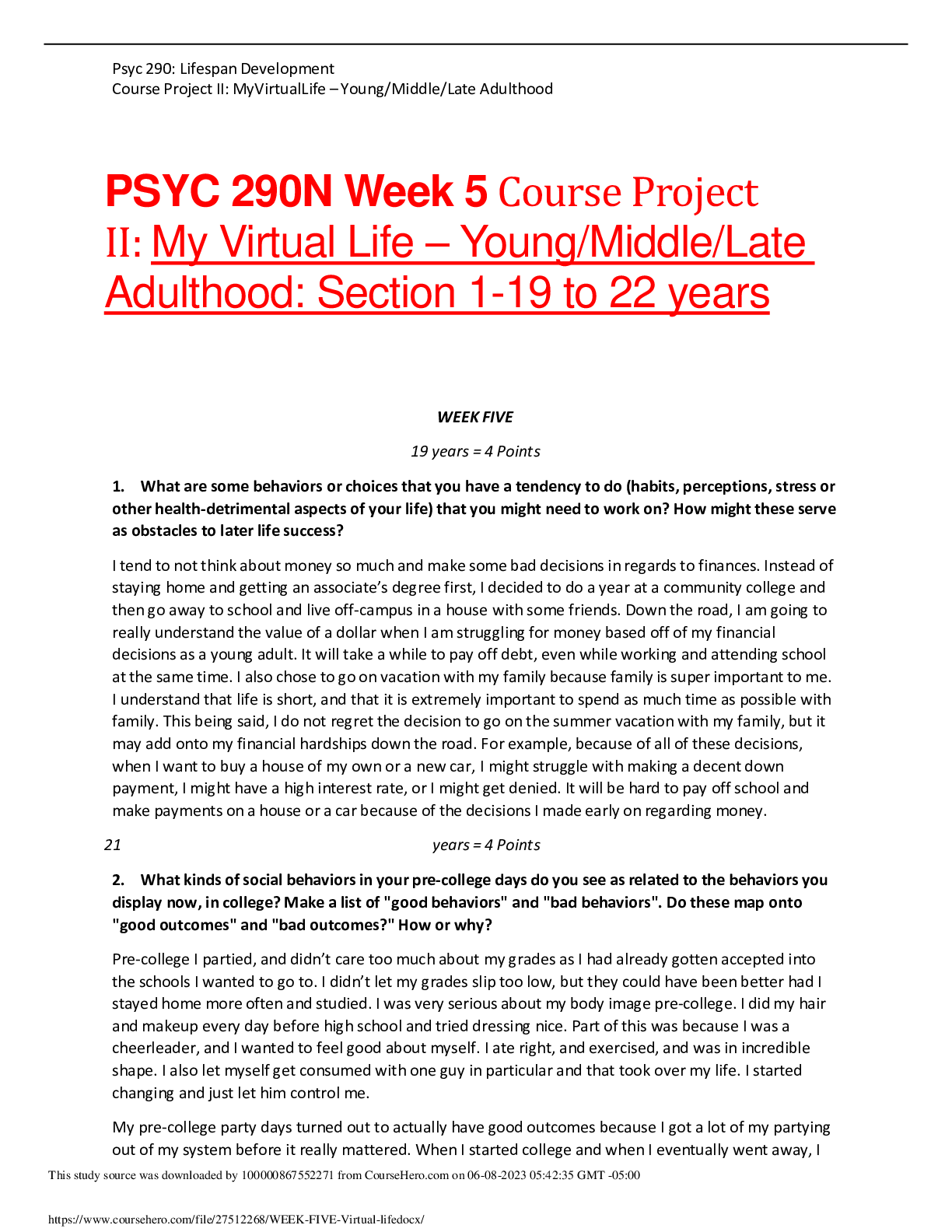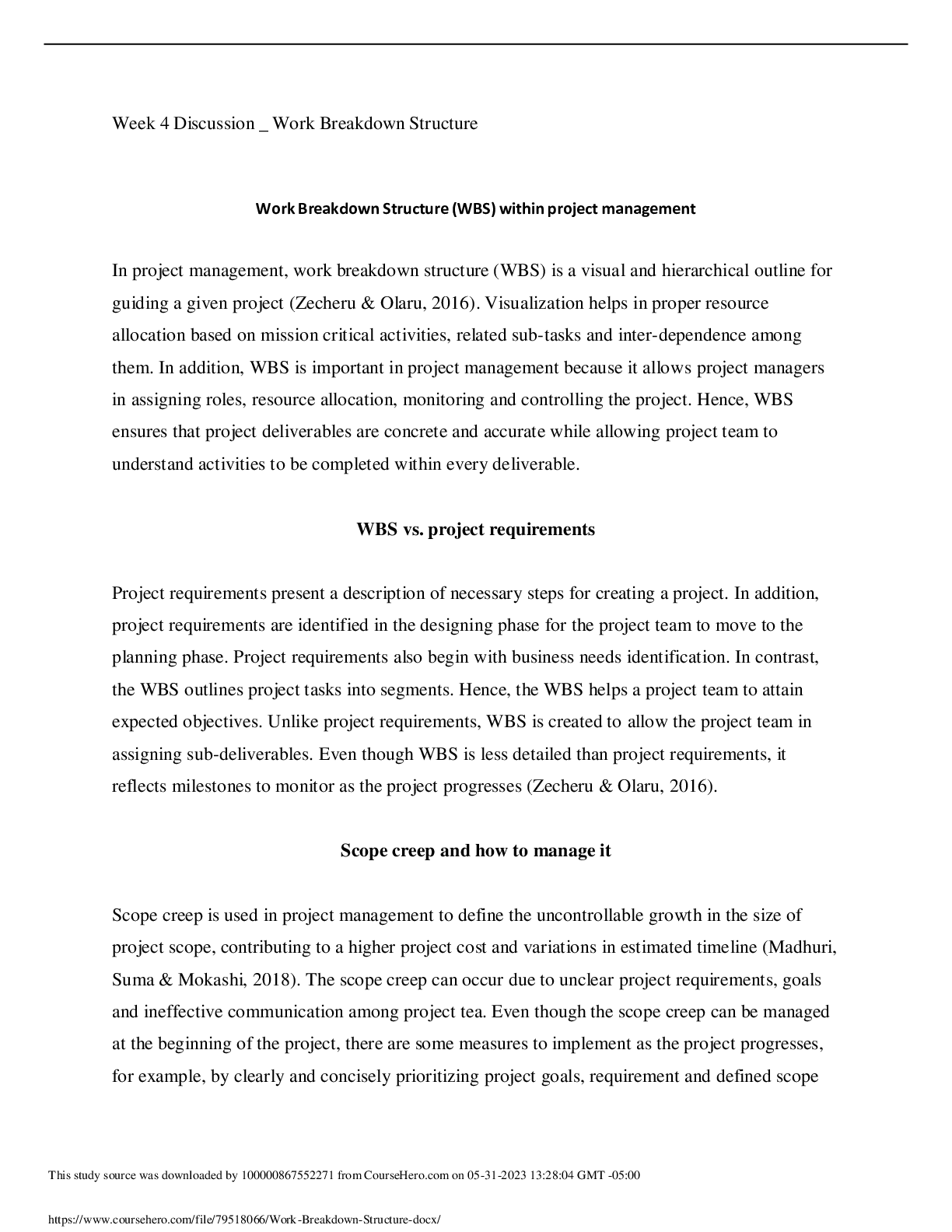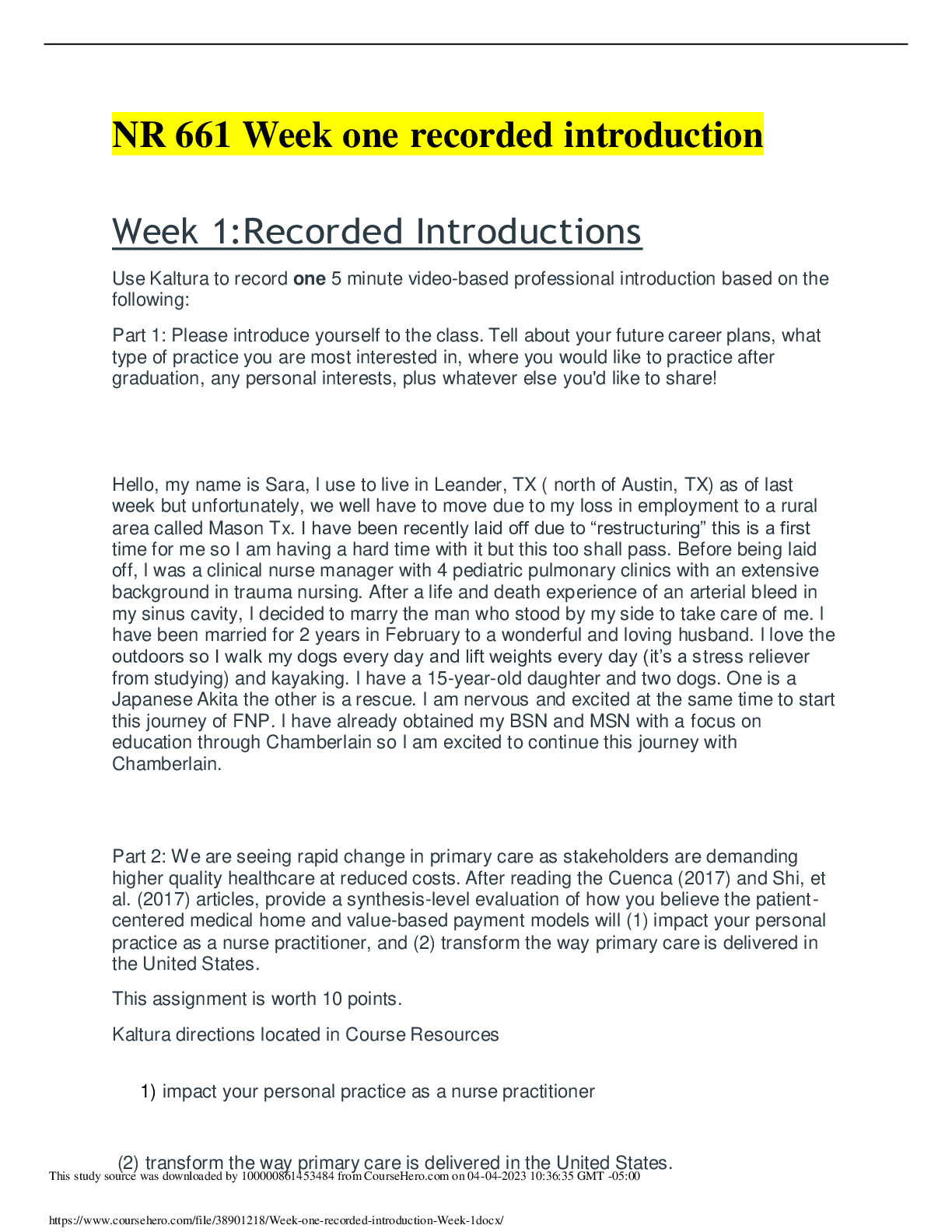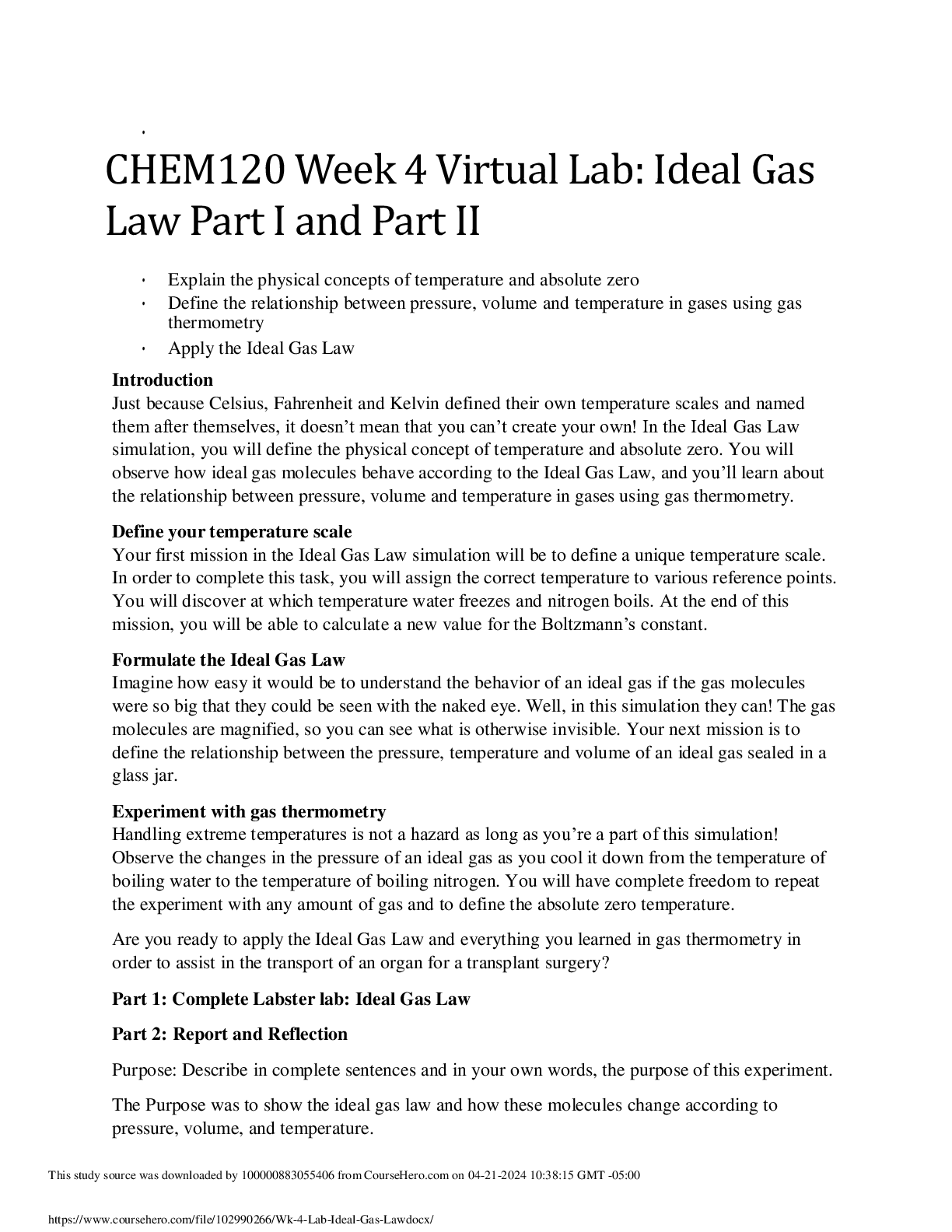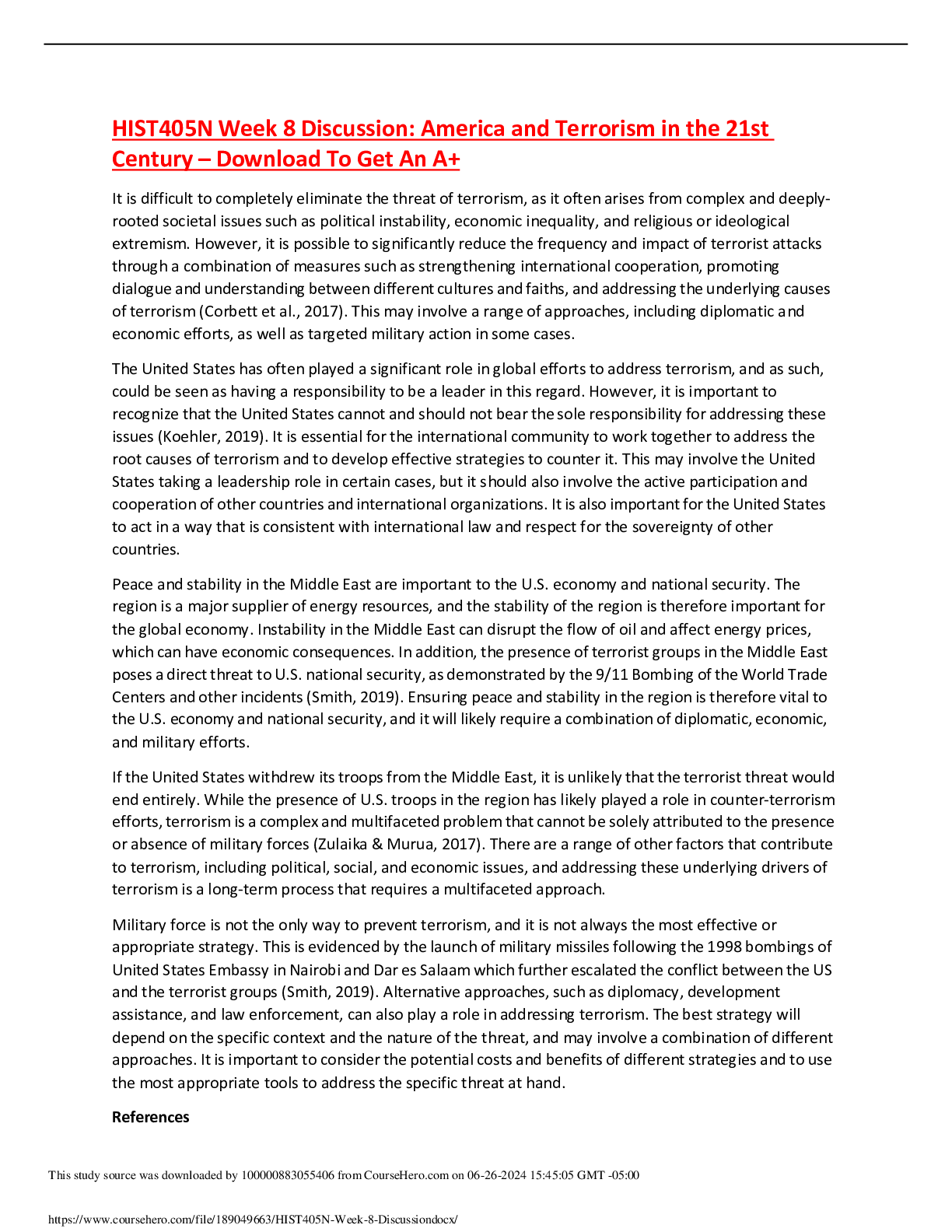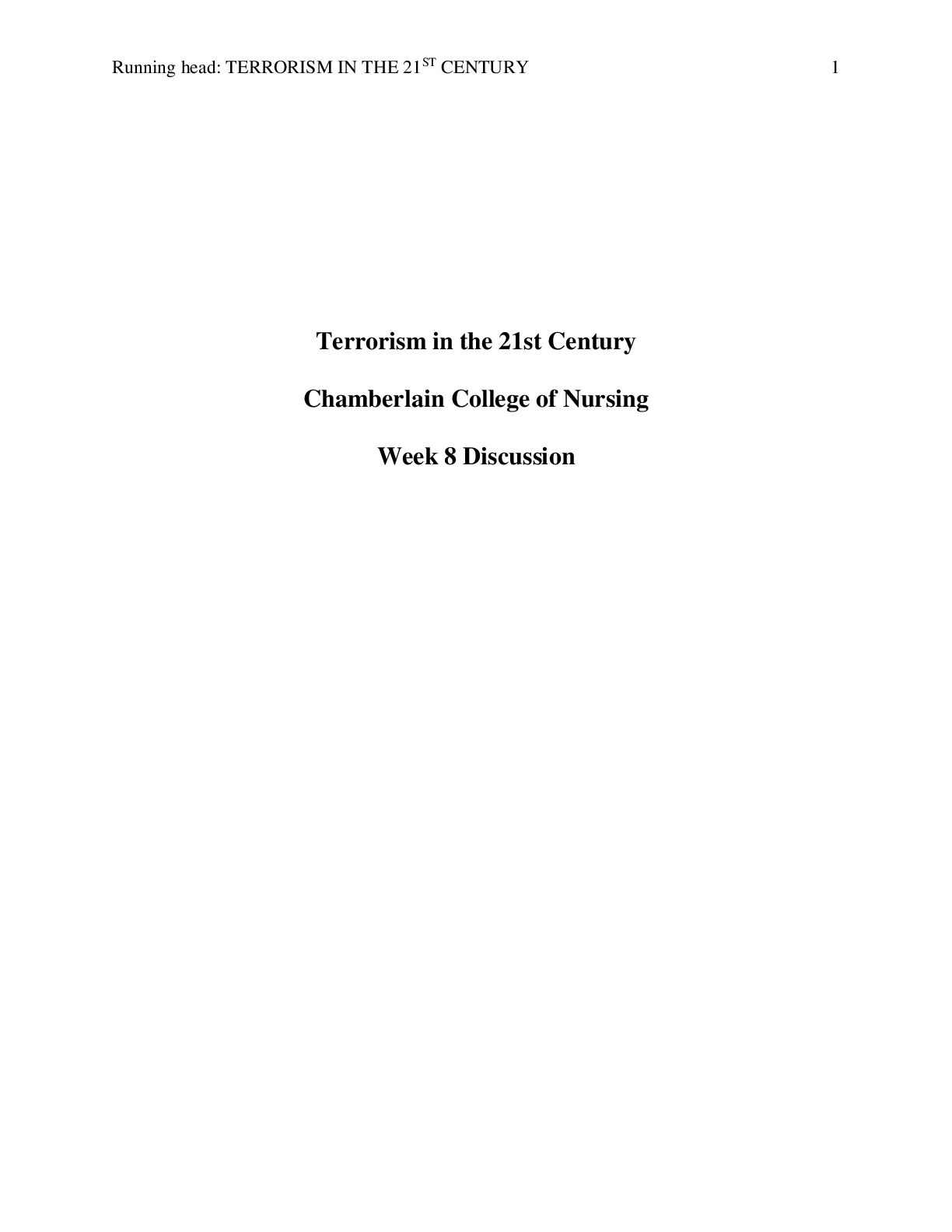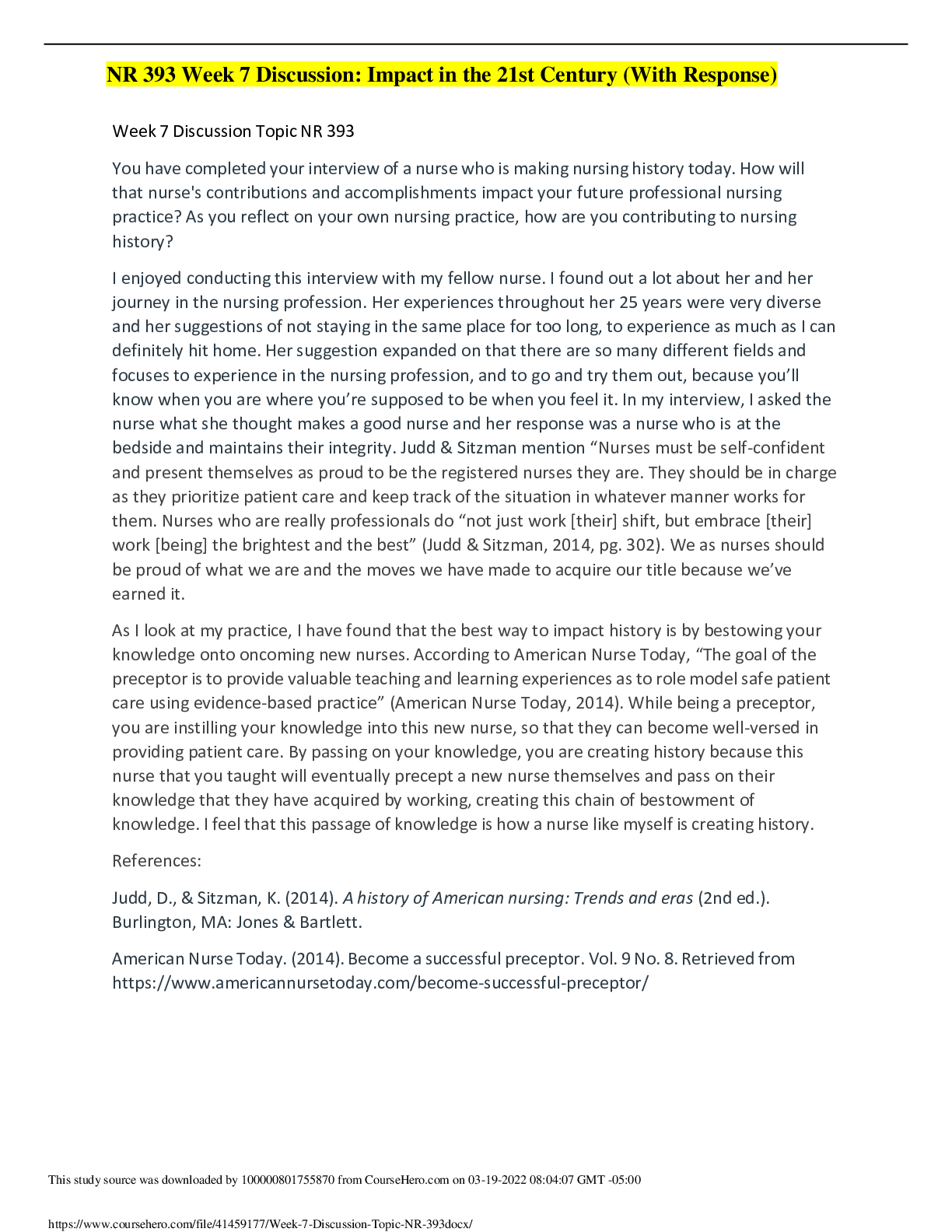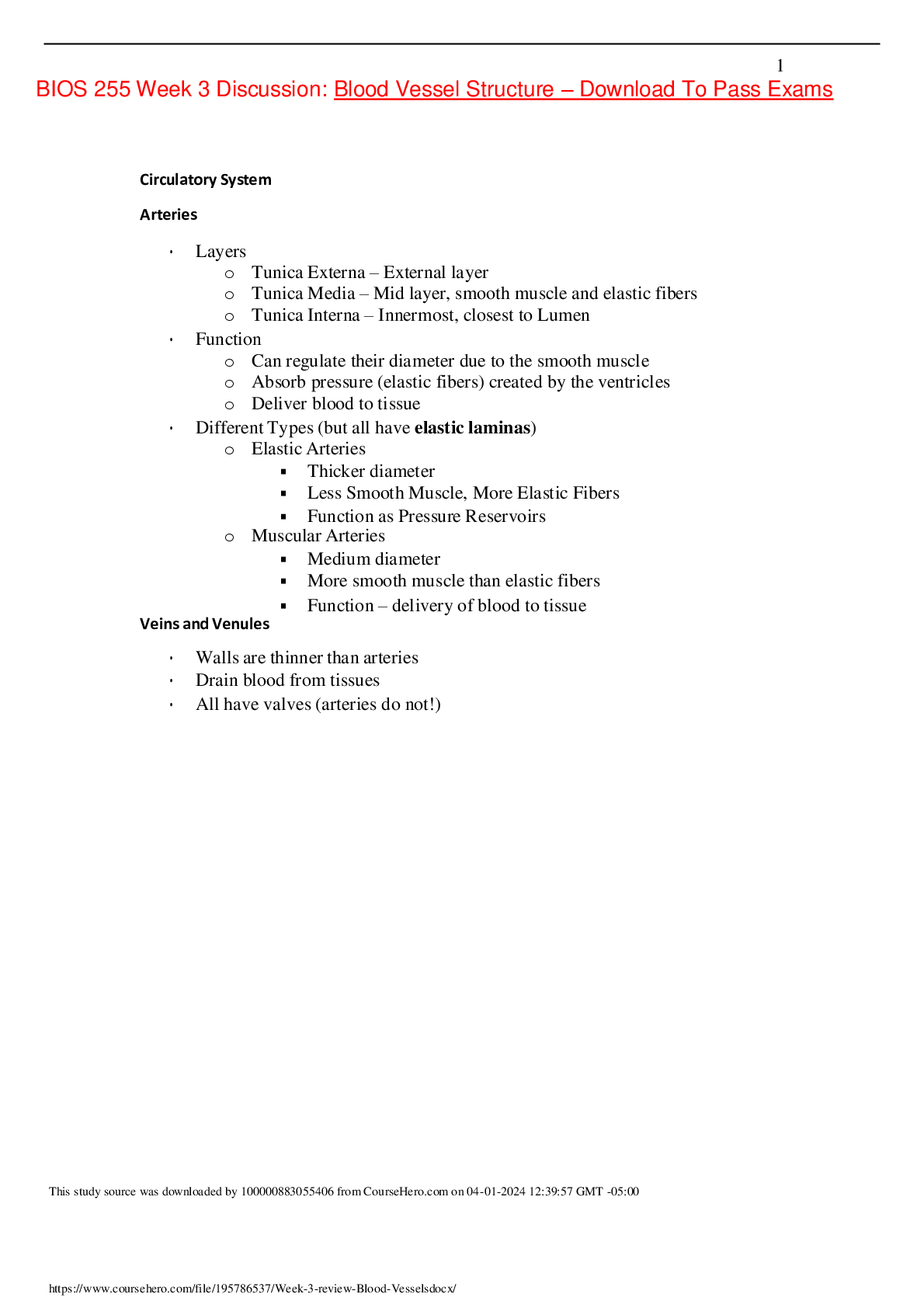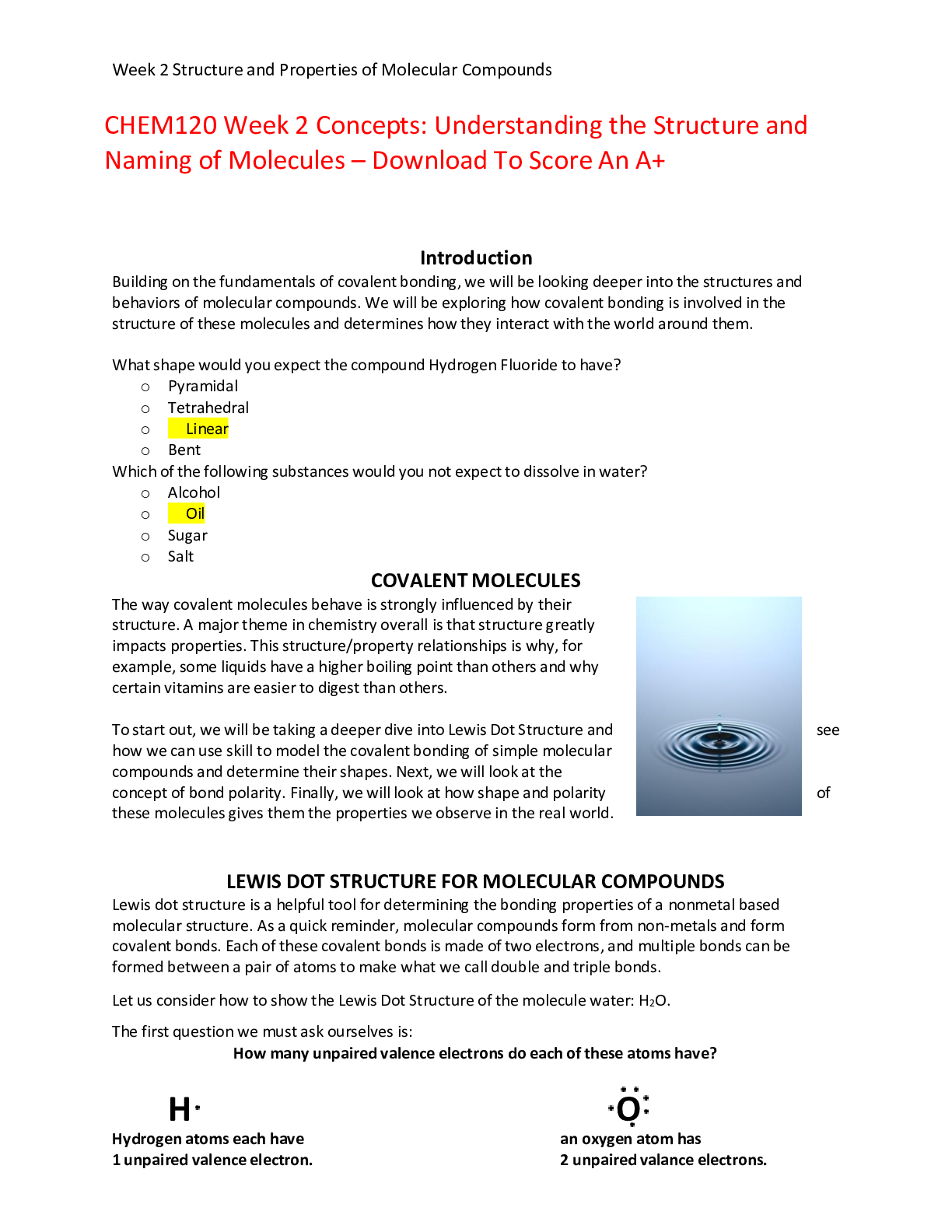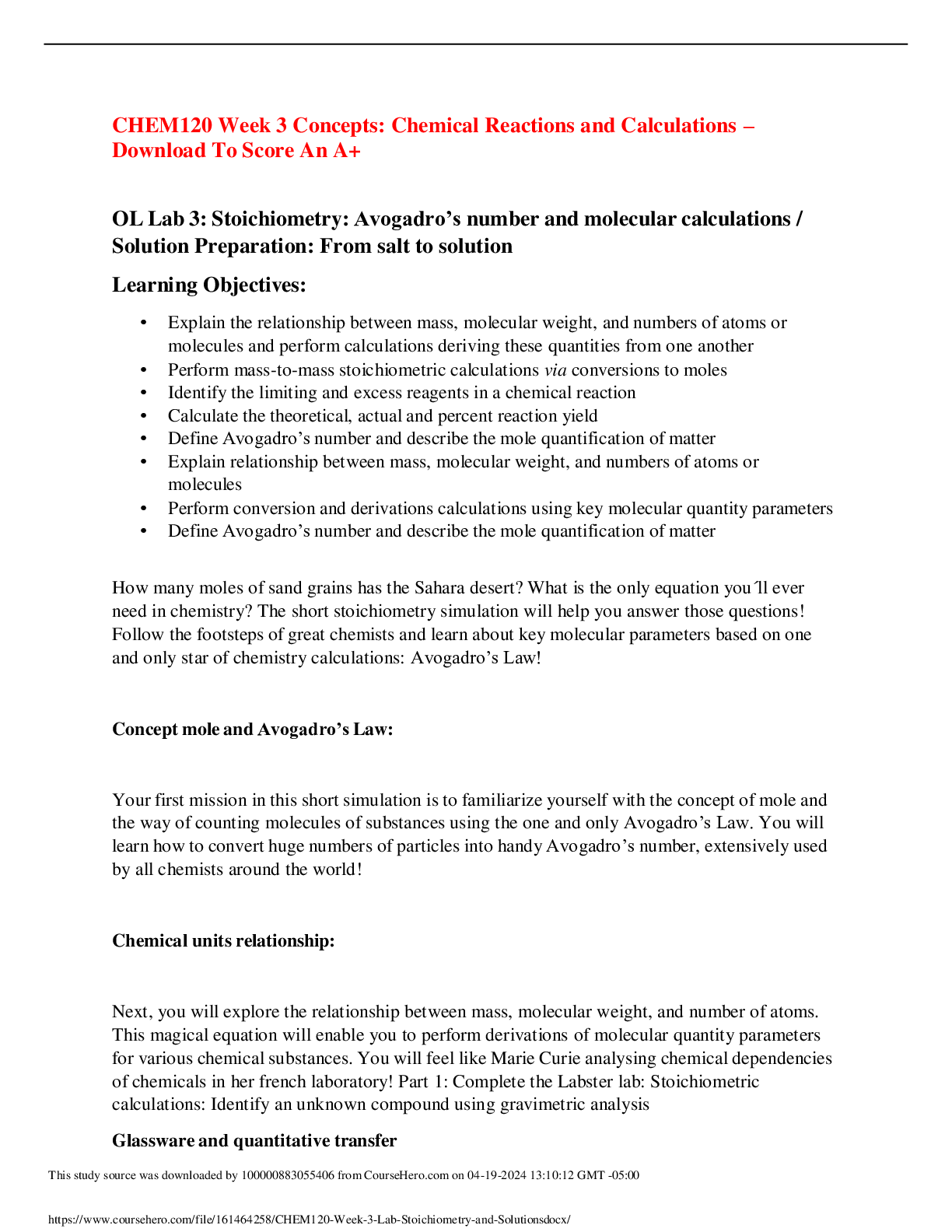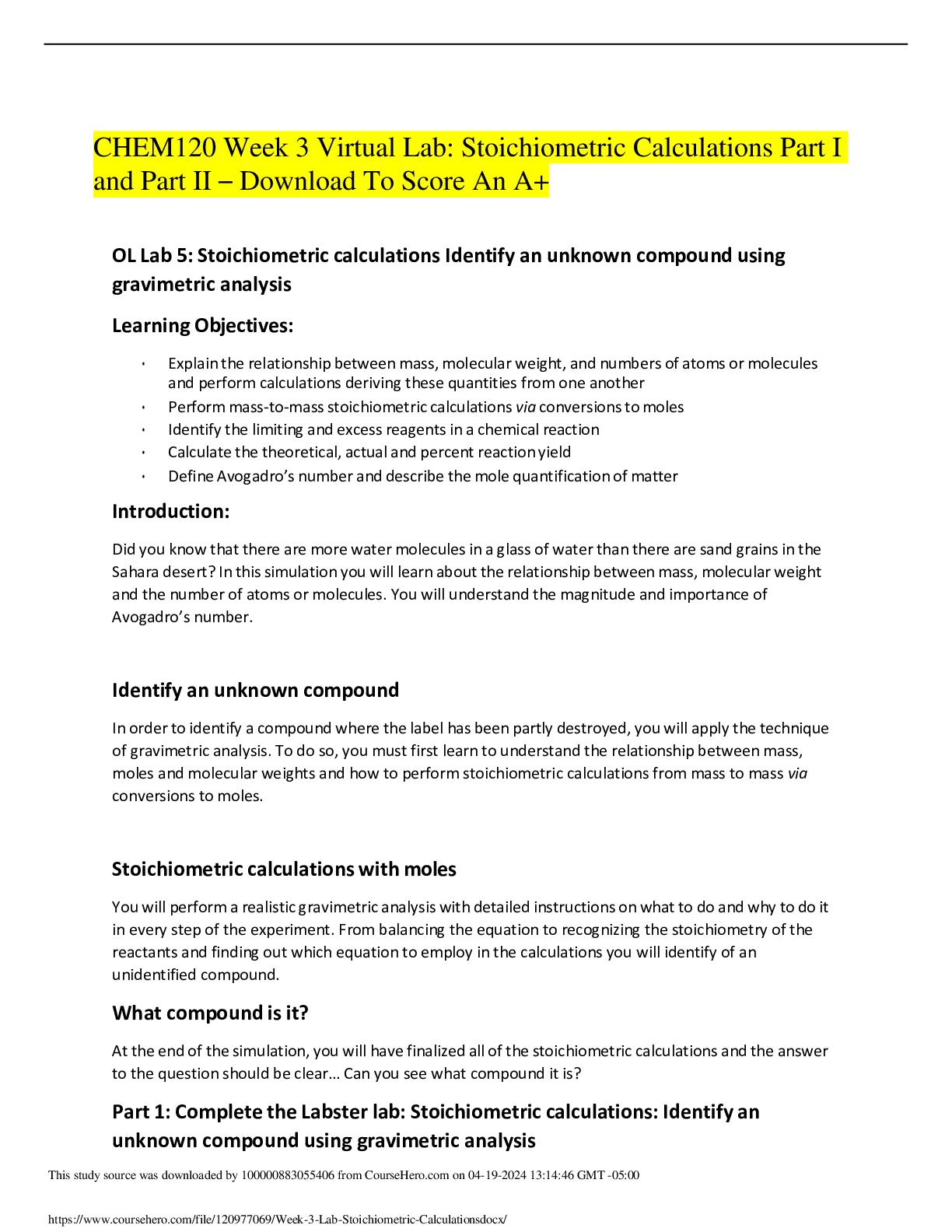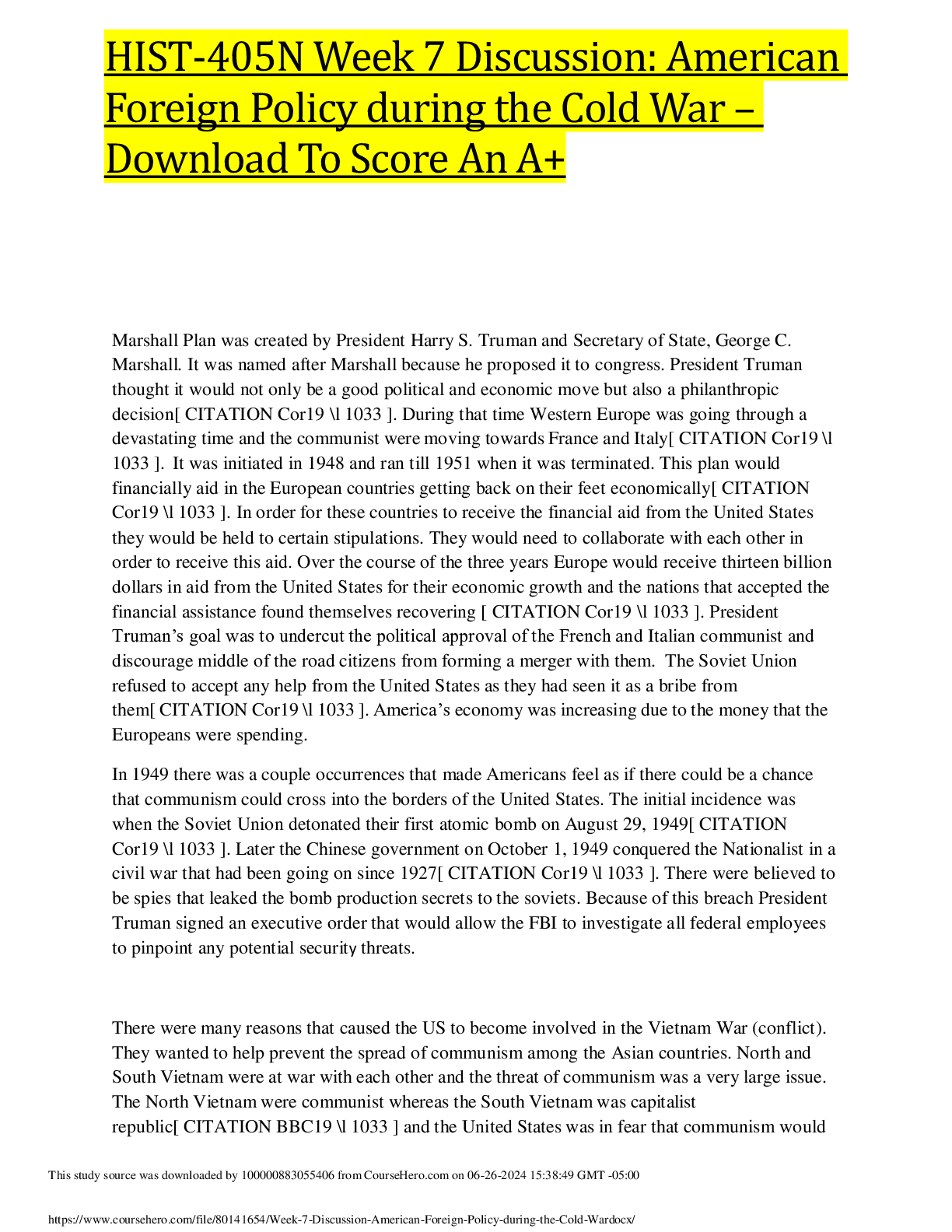AMERICAN HISTORY > DISCUSSION POST > HIST405N Week 8 Discussion: America and Terrorism in the 21st Century – Download To Get An A+ (All)
HIST405N Week 8 Discussion: America and Terrorism in the 21st Century – Download To Get An A+
Document Content and Description Below
HIST405N Week 8 Discussion: America and Terrorism in the 21st Century – Download To Get An A+ It is difficult to completely eliminate the threat of terrorism, as it often arises from complex and de... eply- rooted societal issues such as political instability, economic inequality, and religious or ideological extremism. However, it is possible to significantly reduce the frequency and impact of terrorist attacks through a combination of measures such as strengthening international cooperation, promoting dialogue and understanding between different cultures and faiths, and addressing the underlying causes of terrorism (Corbett et al., 2017). This may involve a range of approaches, including diplomatic and economic efforts, as well as targeted military action in some cases. The United States has often played a significant role in global efforts to address terrorism, and as such, could be seen as having a responsibility to be a leader in this regard. However, it is important to recognize that the United States cannot and should not bear the sole responsibility for addressing these issues (Koehler, 2019). It is essential for the international community to work together to address the root causes of terrorism and to develop effective strategies to counter it. This may involve the United States taking a leadership role in certain cases, but it should also involve the active participation and cooperation of other countries and international organizations. It is also important for the United States to act in a way that is consistent with international law and respect for the sovereignty of other countries. Peace and stability in the Middle East are important to the U.S. economy and national security. The region is a major supplier of energy resources, and the stability of the region is therefore important for the global economy. Instability in the Middle East can disrupt the flow of oil and affect energy prices, which can have economic consequences. In addition, the presence of terrorist groups in the Middle East poses a direct threat to U.S. national security, as demonstrated by the 9/11 Bombing of the World Trade Centers and other incidents (Smith, 2019). Ensuring peace and stability in the region is therefore vital to the U.S. economy and national security, and it will likely require a combination of diplomatic, economic, and military efforts. If the United States withdrew its troops from the Middle East, it is unlikely that the terrorist threat would end entirely. While the presence of U.S. troops in the region has likely played a role in counter-terrorism efforts, terrorism is a complex and multifaceted problem that cannot be solely attributed to the presence or absence of military forces (Zulaika & Murua, 2017). There are a range of other factors that contribute to terrorism, including political, social, and economic issues, and addressing these underlying drivers of terrorism is a long-term process that requires a multifaceted approach. Military force is not the only way to prevent terrorism, and it is not always the most effective or appropriate strategy. This is evidenced by the launch of military missiles following the 1998 bombings of United States Embassy in Nairobi and Dar es Salaam which further escalated the conflict between the US and the terrorist groups (Smith, 2019). Alternative approaches, such as diplomacy, development assistance, and law enforcement, can also play a role in addressing terrorism. The best strategy will depend on the specific context and the nature of the threat, and may involve a combination of different approaches. It is important to consider the potential costs and benefits of different strategies and to use the most appropriate tools to address the specific threat at hand. References Corbett, P. S., Janssen, V., Lund, J. M., Pfannestiel, T. J., & Vickery, P. S. (2017). U.S. history. OpenStax, Rice University. https://openstax.org/books/us-history/pages/32-1-the-war-on-terror Koehler, D. (2019). Violence and terrorism from the far-right: Policy options to counter an elusive threat (pp. 1-21). ICCT Policy Brief, 2019. The Hague: International Centre for Counter-Terrorism. Smith, M. (2019). Securing our Future: A Decade of Counter-terrorism Strategies | United Nations. Un.org; United Nations. https://www.un.org/en/chronicle/article/securing-our-future-decade-counter- terrorism-strategies Zulaika, J., Murua, I. (2017). How terrorism ends - and does not end: the Basque case. Critical Studies on Terrorism, 10(2), 338–356. https://doi.org/10.1080/17539153.2017.1282666 [Show More]
Last updated: 11 months ago
Preview 2 out of 2 pages

Loading document previews ...
Buy this document to get the full access instantly
Instant Download Access after purchase
Buy NowInstant download
We Accept:

Reviews( 0 )
$11.00
Can't find what you want? Try our AI powered Search
Document information
Connected school, study & course
About the document
Uploaded On
Jun 27, 2024
Number of pages
2
Written in
Additional information
This document has been written for:
Uploaded
Jun 27, 2024
Downloads
0
Views
78

